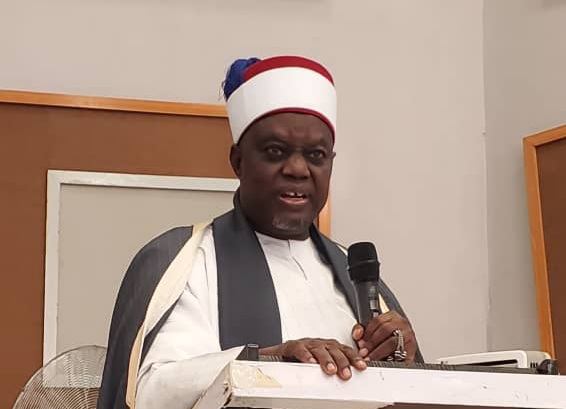From Tongnaan Bawa Jos
The Emir of Lafia, His Royal Highness Justice Sidi Bage, has called for the restoration of traditional rulers in Nigeria’s Constitution, stressing that clearly defining their roles would strengthen governance and promote national unity.
Addressing the Zonal Public Hearing for the North Central Zone Constitutional Review, organized by the Senate in Jos, Plateau State capital. The Emir noted that traditional rulers are integral to Nigeria’s past, present, and future governance.
He emphasized that traditional rulers have long played a pivotal role in maintaining peace, order, and cultural integrity within their communities. Their deep connection to local issues uniquely positions them to address Nigeria’s growing security concerns.
“We are not seeking new roles, but rather the restoration of a role we have always held. Our place in the Constitution has been clear, and now is the time to formally restore it to ensure national stability,”
“We are closest to the people—understanding their struggles, their hopes. As custodians of culture, traditional rulers have upheld peace and order. If we are formally recognized in the Constitution, we can extend this leadership to a wider scale, complementing government efforts,” he stated.
Justice Bage further underscored the stabilizing influence of traditional institutions, stressing that, despite the nation’s evolution, traditional rulers remain crucial in promoting unity and resolving conflicts at the grassroots level.
“In the past, we were officially recognized in the Constitution. Yet today, our authority has diminished, even as we continue to lead our communities. Restoring us to the Constitution won’t undermine modern governance; it will restore the balance that once existed,” he explained.
The conversation also shifted to regional governance, with Ambassador Ahmed Musa Ibeto, Chairman of the Steering Committee for the Movement for the Creation of Kainji State, advocating for a new state carved from Niger and Kebbi States. He explained that the vast size of Niger State has led to significant governance challenges, particularly around security.
“Niger State spans 10% of Nigeria’s landmass, making it one of the country’s largest states. This vastness complicates governance and contributes to rising insecurity,” Ibeto said. He added that the demand for Kainji State is supported by three major emirates—Kontagora, Borgu, and Zuru—areas with long-standing historical ties that could benefit from a smaller, more manageable state.
“The land is so vast that it can take up to two days to travel across it. Many areas remain underserved, leaving them vulnerable to insecurity. Creating Kainji State will bring governance closer to the people, enhancing security and accessibility,” he stressed.
The event saw broad participation from various stakeholders, including senators, traditional leaders, youth, women, professional groups, NGOs, and legislators. These groups united in calling for constitutional reforms, focusing on issues like state creation, state policing, the passage of the gender bill, and increased inclusion of Persons with Disabilities (PWDs).


